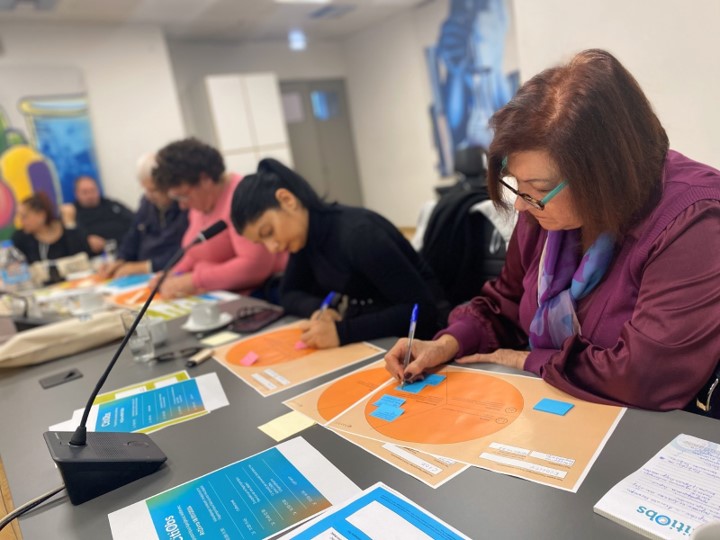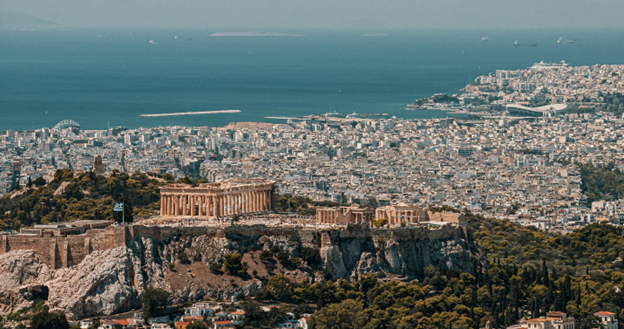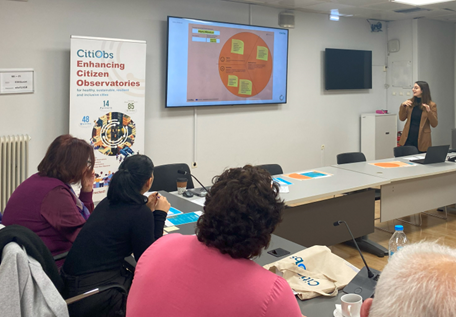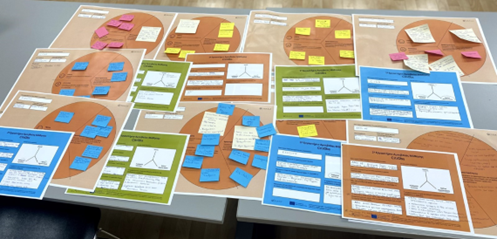
On January 18, 2024, stakeholders and citizens of our Frontrunner City, Athens, gathered at the National Hellenic Research Foundation for the first CitiObs Mutual Learning Workshop. The objective was to reflect on Athen's current landscape regarding citizen science and Citizen Observatories (COs), understand the challenges they face and identify opportunities for collaboration.
A City with Vision and Challenges

Photo Rafael Hoyos Weht on Unsplash
Athens is the capital city of Greece and is located in the Attica Region. The city has more than 600.000 inhabitants while the urban area's population is over three million, making it the eighth largest urban area in the European Union. Athens is facing many environmental issues, including poor air quality, urban heat island effects, extreme heat waves, high flood risks, and noise pollution. The city has participated in numerous Citizen Science projects and is selected as one of the 100 Climate-Neutral and Smart Cities by 2030.
Building Bridges Through Mutual Learning
The workshop brought together 15 participants from diverse backgrounds, each passionate about contributing to the city's environmental well-being. Representatives from three Citizen Observatories joined other key stakeholders and the workshop was separated into two main interactive sessions.
During the first session, participants presented themselves along with the respective CO they represent. Each CO outlined its activities, approach to data collection and community engagement, highlighting significant milestones and success stories. This exchange of ideas fostered a sense of unity and shared purpose among attendees.
Addressing Challenges Together

The second session, "Collaborating with Citizen Observatories", used a Tasks/Pains/Gains canvas to further elaborate on the experiences of each CO. Participants presented the tasks that their CO undertakes, the benefits they bring, and the obstacles they face. These conversations revealed common challenges, such as effectively communicating the goals of CS projects to the public and bridging the language gap between scientists and citizens.
One notable point of discussion was the need for greater public education on citizen science. Participants expressed a desire for faster progress and more impactful change, but also recognized the significant strides made in recent years. As one attendee noted, "While there's still a lot more ground to cover, we are not where we were 10 years ago." We concluded the meeting in this hopeful note.

Material gathered from the workshop
The meeting provided a significantly clearer understanding of the current situation and activities of the COs. As a direct outcome, we have initiated a new partnership with one of the participating COs, further discussing their difficulties and examining how CitiObs could support them.
There is power in coming together, sharing knowledge, and working collaboratively towards a common goal. As we move forward, we are inspired and motivated by the possibilities that lie ahead.


